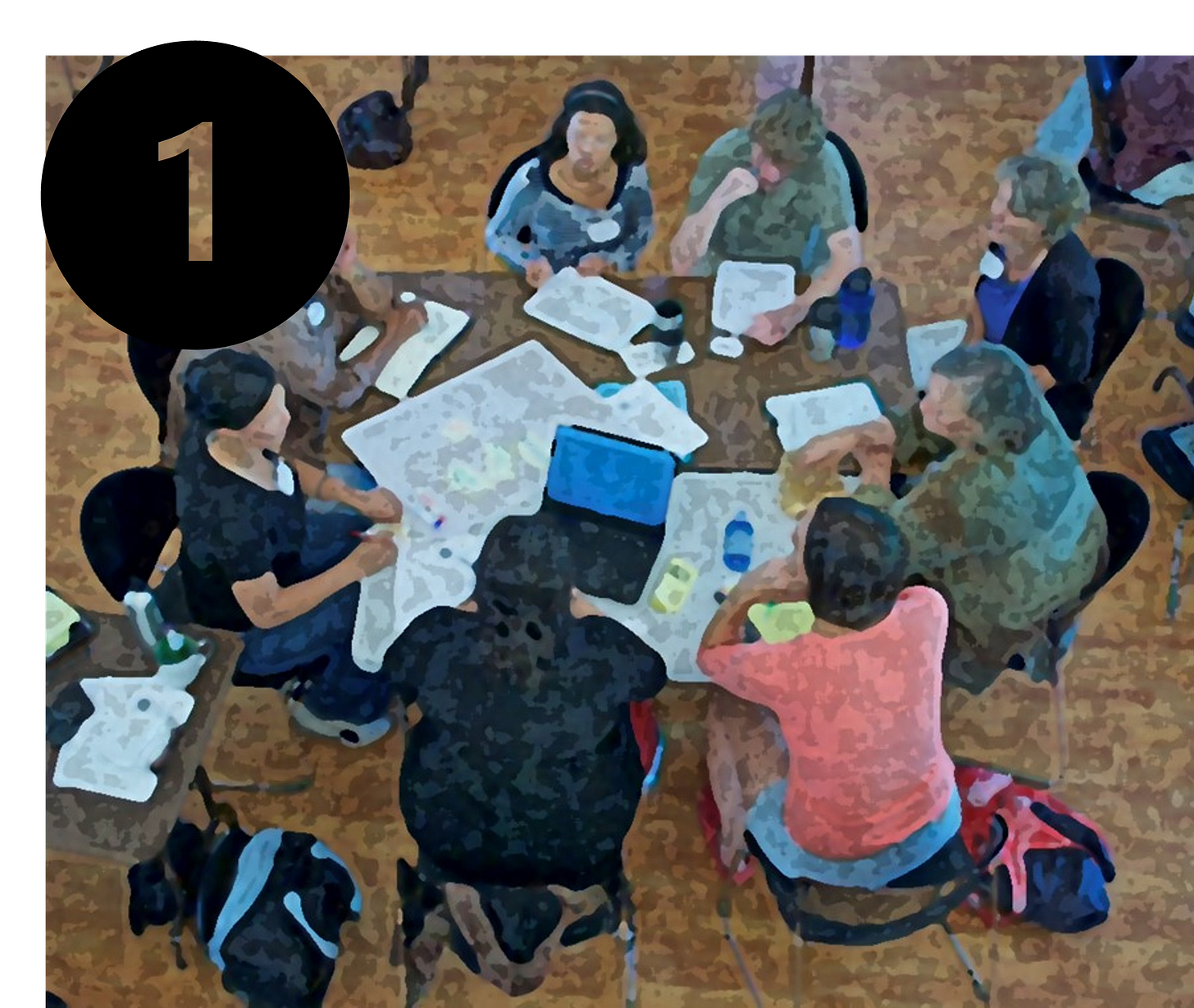#1 Building Relationships and Networks
Strategic networking and collaboration can create a powerful support system that enhances both your career trajectory and personal satisfaction.
Finally, we have reached the end of the summer summer-into-fall 2024 “Top 10 Essential Practices” series for new faculty! Catch up with the series introduction here and #10: Understand Your Learners, #9: Clear Learning Objectives, #8: Using Active Learning, #7: Providing Timely and Constructive Feedback, #6: Promoting Belonging, #5: Staying Organized and Managing Time Effectively, #4: Utilizing Technology Wisely, #3: Encouraging Critical Thinking, and #2: Continuous Professional Development.
It’s a serendipitous coincidence that I’m posting this from a conference (the International Society for the Scholarship of Teaching and Learning conference in lovely French Lick, Indiana) - where I am happily chatting with many new and old colleague-friends - since the theme for this final top 10 essential practice is about building relationships. Building meaningful relationships and networks is essential not only to enhance our teaching effectiveness but also support our professional growth and development.
Making Institutional Connections
Finding supportive networks of colleagues also involves understanding and integrating into the institutional culture. While there are many ways to do this, I offer the following three strategies, chosen because they deliberately challenge those of us who have become more comfortable with remote participation to break out of this habit and find ways to engage face-to-face.
Understand the institutional culture. Observe and familiarize yourself with the local relationship-building culture. This involves understanding how and where networking typically occurs - such as informal gatherings or before and after departmental or committee meetings - and finding ways to show up in those spaces to make those personal connections.
Engage in departmental & campus activities. Actively participate in departmental meetings, committees, and social events. These settings provide opportunities to meet colleagues and learn about ongoing projects and initiatives. Outside of your department, make time to attend campus-wide events - these are excellent spaces for meeting faculty from other departments and expanding your professional network.
Engage in service work. Consider engaging in service work strategically. While it's important not to overextend, participating in service roles can help you connect with potential allies and mentors within and outside of your institution. Here are some ideas for deciding which opportunities to say “yes” to.
Want to read more? Here’s some advice for grad students and more on Building Relationships at Home.
Engage in Collaborative Scholarship
Collaborative scholarship is one way to develop deeper, more sustained relationships with peers that can lead to both greater and more diverse scholarly productivity. I find my research collaborations to be one of the most rewarding parts of my work, and am always on the lookout for new projects and new collaborators.
Public scholarship often involves collaborative projects that bring together faculty from different disciplines, as well as community partners. For instance, projects that involve co-creating knowledge with community organizations or addressing societal issues can connect you with peers who share similar interests and goals.
Interdisciplinary opportunities. Collaborative scholarship benefits from interdisciplinary perspectives, which can be found by deliberately seeking out colleagues from various fields. This interdisciplinary approach can lead to innovative research collaborations and a more diverse professional network.
Institutional support and recognition. Institutions often provide platforms for faculty to showcase your work, such as conferences, workshops, and seminars. These events are excellent opportunities for networking with colleagues outside of your program or department, and provides a space for often fruitful conversations.
Want to read more? You might enjoy Connecting Public Scholarship and Professional Development and Keeping Up With Public Scholarship.
Building personally and professionally rewarding relationships is a multifaceted process. By immersing yourself in the institutional environment and seizing opportunities for collaborative scholarship, you can build a robust network that supports both personal and professional growth. Ultimately, these strategies will help you create meaningful relationships that enrich your academic life and amplify your impact within and beyond your institution.
What has been most helpful for you in making and sustaining relationships with colleagues? Please share in the comments!
If you happen to be attending the ISSOTL conference, I would love to meet in-person - you can find me at:
Presentation: “Cultivating Trust in the Feedback Process: Instructor Practices and Learning Environment Conditions”
Poster: “From Concept to Classrooms: Initiating Successful MegaSoTL Projects.”
Online Pedagogy and Research SIG interest meeting
In two weeks I’ll be at the POD conference:
POD talk: “Uniting for Impact: Strategies for the Formation of MegaSoTL Collaborations”
Workshop-in-a-box: “The Power of Feedback: Equipping Developers with Feedback Literacy Strategies”
SoTL SIG presentation: “Frameworks for Elevating SoTL Programming through Fostering Relationships”
Want to read more? Browse the Tips archive to read through one of the 200+ posts from the past three and a half years, or search for specific topics
Didn’t get the latest AI + Teaching post?
When I created the new section, I made it an “opt-in” for current subscribers, rather than “opt-out.” This means that you need to elect to receive posts from that section - instructions for how to do that are found here:




